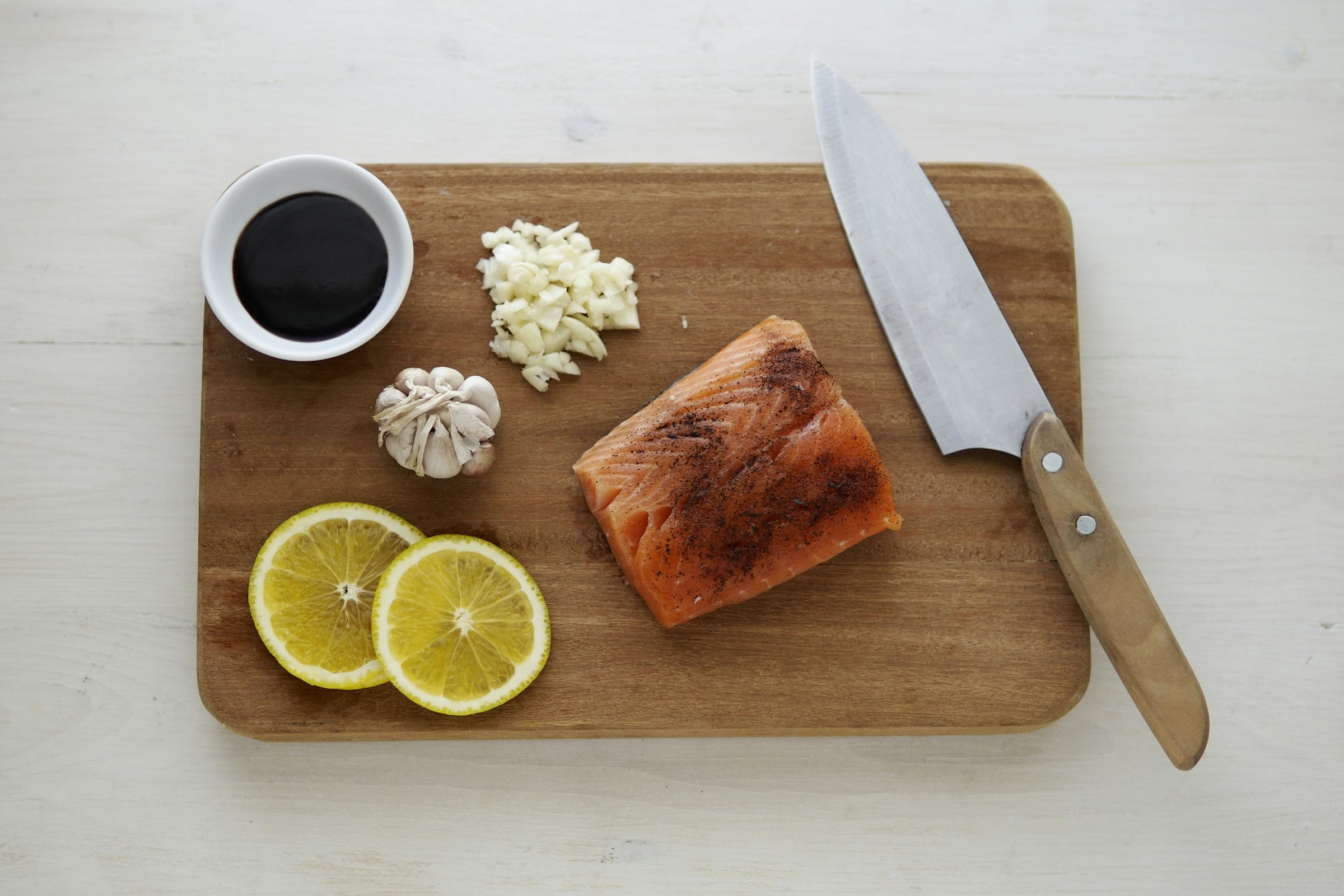
The Mediterranean diet is one of the most beneficial and widely studied diets around. You’ll find many health benefits associated with the food choices, including heart-boosting vitamins and nutrients that are also known to reduce the risk of certain kinds of cancer.
- What is the Mediterranean diet?
- What foods can you eat on the diet?
- What foods should you avoid?
- 6 evidence-based benefits of the Mediterranean diet
- Are there any drawbacks?
- Can you follow the Mediterranean diet indefinitely?
- How does the Mediterranean diet compare to other evidence-based diets like keto?
You’ll get to choose from healthy fish and lean meats like chicken as well as yummy nuts, oils, fruits, and vegetables. Unlike fad diets, the Mediterranean diet encourages sustainable and healthier living with a variety of delicious meals.

What is the Mediterranean diet?
The Mediterranean diet is based on the traditional foods eaten by people who live along the banks of the Mediterranean Sea. Mediterranean diet food lists focus on items like fish, fresh fruits, and vegetables, as well as olive oil, nuts, legumes, and whole grains. You can drink wine when on this diet, but only in moderation. Some dieters also enjoy dairy or poultry from time to time. The Mediterranean diet favors whole foods over highly processed options, and fruit is a common dessert instead of processed sugary treats.

What foods can you eat on the diet?
1. Whole grains
Enjoy bread, pasta, and polenta made from whole grains such as buckwheat, barley, bulgur, oats, farro, brown rice, rye, freekeh, millet, and spelt.
2. Proteins
Fish is a big part of this diet. You can also enjoy yogurt, cheese, milk, chicken, turkey, and eggs.
3. Nuts and seeds
Easy-to-find nuts and seeds include walnuts, hazelnuts, almonds, pine nuts, cashews, and pistachios, as well as pumpkin, sesame, and sunflower seeds.

4. Beans and legumes
You will find a variety of delicious recipes making use of cannellini beans, chickpeas, fava beans, green beans, kidney beans, lentils, split peas, and tahini sauce.
5. Fruits and vegetables
Choose fresh veggies such as kale, spinach, broccoli, onions, cauliflower, cucumbers, sweet potatoes, and turnips when possible. You can also enjoy fresh fruits such as apples, oranges, bananas, pears, strawberries, grapes, melons, dates, figs, and peaches.

What foods should you avoid?
Avoid processed foods as much as possible while on the Mediterranean diet. You know the usual suspects like cakes and chips. These harmful foods contain high salt, sugar, saturated fat, and preservatives. Limiting these items — or avoiding them altogether — helps to prevent weight gain, high cholesterol, diabetes, and heart problems.

6 evidence-based benefits of the Mediterranean diet
1. Weight loss
Adherents to the Mediterranean diet tend to have a lower body mass index (BMI). This is thanks to the diet’s high concentration of antioxidants and anti-inflammatory foods. The high fiber foods and healthy fats can help stabilize blood sugar levels and keep you feeling full. This is a far cry from the frequent consumption of sugar and refined carbohydrates, which results in sugar cravings and a blood sugar rollercoaster.
2. Brain booster
If you want to boost your brain power, it’s probably a good idea to follow the Mediterranean diet as the science is mounting. For example, researchers have linked adherence to the diet with a reduction in the markers of dementia and cognitive decline in older adults. One study showed that the diet could improve brain function, memory, and the symptoms of depression in older adults.
3. Helps prevent type 2 diabetes
Doctors often recommend giving the Mediterranean diet a try, as it’s been shown that those who regularly eat nuts and seeds and cook with olive oil have a lower risk of diabetes. Researchers examined people with diabetes for four years and concluded that the Mediterranean diet lowered the risk of developing type 2 diabetes by an impressive 52%.

4. Good for the heart
A large review of 41 studies showed that sticking to the Mediterranean diet was associated with a reduced risk of stroke and heart disease. Studies also highlight that this way of eating could reduce blood pressure levels and protect against the accumulation of plaque in the arteries, which are both risk factors for heart disease.
5. Good for your metabolism and cholesterol levels
A large analysis of 1,224 individuals from the PREDIMED study revealed the Mediterranean diet improved metabolic syndrome over time. Scientists also found that those with a high risk of heart disease had a reduction in the levels of oxidized LDL or what’s known as the ‘bad cholesterol’ after only three months on the Mediterranean diet.
6. Improves mood
Adherents of the Mediterranean diet report lower rates of depression, according to several longitudinal studies. For example, some participants showed a 33% reduction of risk compared to people who ate a diet rich in processed meats, sugar, and trans fats.

Are there any drawbacks?
Like any diet or lifestyle change, eating a diet rich in Mediterranean foods might not be a great choice for everyone. Some health issues that could arise with this diet include:
- Possible weight gain from eating meals with too much olive oil and nuts
- Lower levels of iron
- Loss of calcium
Portion control can help limit weight gain from any high-fat diet. However, you should also consider a regular exercise routine to maintain a healthy weight.
Make sure your diet includes foods rich in iron and vitamin C to help your body absorb iron more effectively. If you want to avoid calcium loss, you can ask your nutritionist about taking a calcium supplement.
Some people find it problematic that wine is a part of a Mediterranean diet. However, you can simply avoid drinking it if that’s an issue. This is especially important if you are pregnant, at risk for breast cancer, prone to alcohol abuse or have a history of it, or if you should avoid alcohol for any other reason.
As with any change to your diet, be sure to talk with a doctor or nutritionist first. The Mediterranean diet combines a delicious variety of healthy foods can make it an excellent choice for people who want to maintain a healthy weight and start feeling and looking better.

Can you follow the Mediterranean diet indefinitely?
When it comes to diets, most of them are temporary for weight loss — these are considered “fad diets.” Diets that fall under this category are typically very restrictive, making them unrealistic for the long term, and possibly leading to issues like nutrient deficiencies.
The Mediterranean diet is not considered a fad diet because the list of foods you can enjoy is long, and the purpose behind this way of eating is to improve your health, not just lose weight.

How does the Mediterranean diet compare to other evidence-based diets like keto?
There’s also valid research on other popular diets like ketogenic and the DASH diet. Even so, it seems the Mediterranean diet takes the crown of the most evidence-based because it has the most and the longest studies showing efficacy and potential benefits.
The Mediterranean diet is similar to the ketogenic diet because it also limits sugary foods and encourages certain healthy fats like olive oil and fish. That being said, there are key differences because the keto diet is focused on dropping your daily carb count below a certain point, making it more difficult to stick to for some people. The Mediterranean diet isn’t necessarily low carb, but it is definitely lower in carbs than the standard American diet. Both the keto diet and the Mediterranean diet have been widely researched for weight loss.
When you look at the research over the years, it’s clear that the people living along the banks of the Mediterranean Sea got something right — an eating style that’s protective and beneficial for your heart, metabolism, brain, and more.
Editors' Recommendations
- These are the healthiest vegetables you need to start eating now
- Plant-based diet facts: A beginner’s guide to this lifestyle
- Here are the benefits of taking vitamin D supplements – what you should know
- You need to start adding beer to your waffle batter – here’s why
- It’s time to stop fearing MSG: Here’s why





